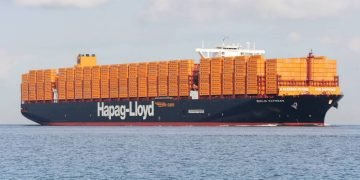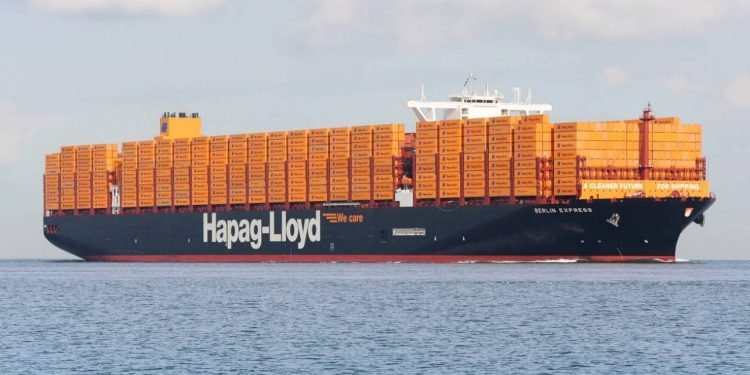The world of ocean cargo is embracing technological advancements to improve efficiency and transparency. Leading shipping company Hapag-Lloyd recently announced the launch of a pilot program utilizing blockchain technology to track containerized cargo movement. This initiative, kicking off in July 2024, signifies a step towards a more transparent and data-driven future for the industry.
Revolutionizing Visibility: Blockchain Takes the Helm
Hapag-Lloyd’s pilot program will involve utilizing a blockchain platform to track containers throughout their journey. Blockchain, a secure and distributed ledger system, offers several advantages for cargo tracking:
- Enhanced Transparency: All participants in the supply chain, from shippers to customs officials, can access real-time data on a container’s location and status, promoting transparency and reducing information silos.
- Improved Efficiency: Streamlined data sharing through blockchain can expedite customs clearance processes and potentially reduce delays.
- Reduced Paperwork: Blockchain technology potentially eliminates the need for paper-based documentation, improving efficiency and reducing the risk of errors.
A Glimpse into the Future of Ocean Cargo:
The Hapag-Lloyd pilot program represents a glimpse into the future of ocean cargo. Here’s how blockchain could transform the industry:
- Increased Trust and Collaboration: Blockchain fosters trust and collaboration within the supply chain by providing a secure and transparent platform for data sharing.
- Enhanced Risk Management: Real-time visibility throughout the journey can help mitigate potential risks associated with delays, theft, or damage.
- Improved Customer Experience: Greater transparency can improve customer experience by providing them with real-time updates on the status of their cargo.
Challenges and Considerations:
While blockchain offers a powerful solution, there are hurdles to address:
- Industry Adoption: Widespread adoption of blockchain technology across the ocean cargo industry is crucial for it to reach its full potential.
- Standardization: Establishing standardized protocols for data sharing and documentation within the blockchain ecosystem is necessary.
- Integration with Existing Systems: Integrating blockchain technology with existing IT infrastructure within companies presents a challenge.
A Collaborative Approach is Key:
The success of blockchain in ocean cargo depends on industry-wide collaboration. Here’s how it could unfold:
- Standardization Efforts: Collaborative efforts to establish standardized data formats and protocols can accelerate industry adoption.
- Technological Advancements: Continued advancements in blockchain technology can address scalability and integration challenges.
- Building a Blockchain Ecosystem: As more companies embrace blockchain, a robust ecosystem can develop, maximizing its benefits for the entire industry.
A New Era for Ocean Cargo?
Hapag-Lloyd’s pilot program marks a significant step towards a future where blockchain revolutionizes ocean cargo tracking. As collaboration increases, technology advances, and challenges are addressed, blockchain has the potential to transform the industry by creating a more transparent, efficient, and data-driven ecosystem for global trade.























